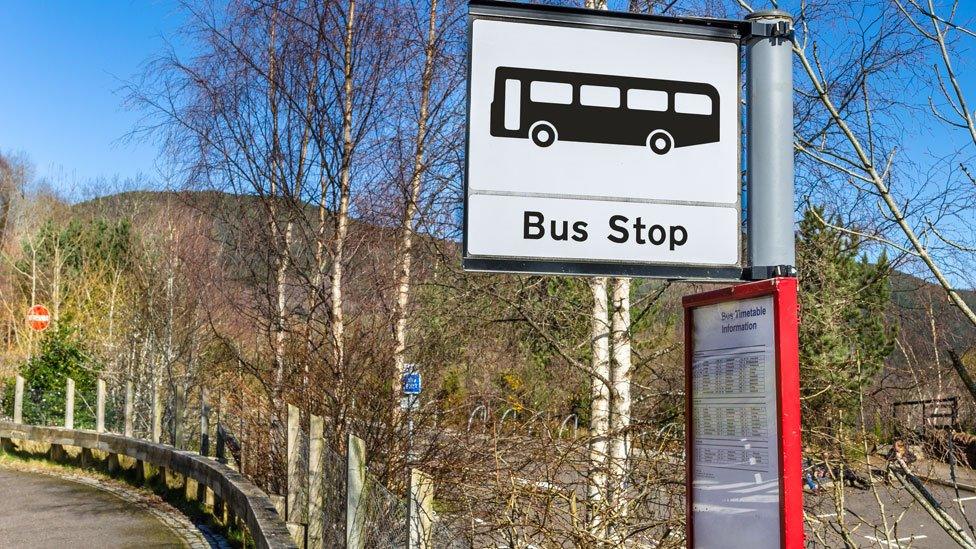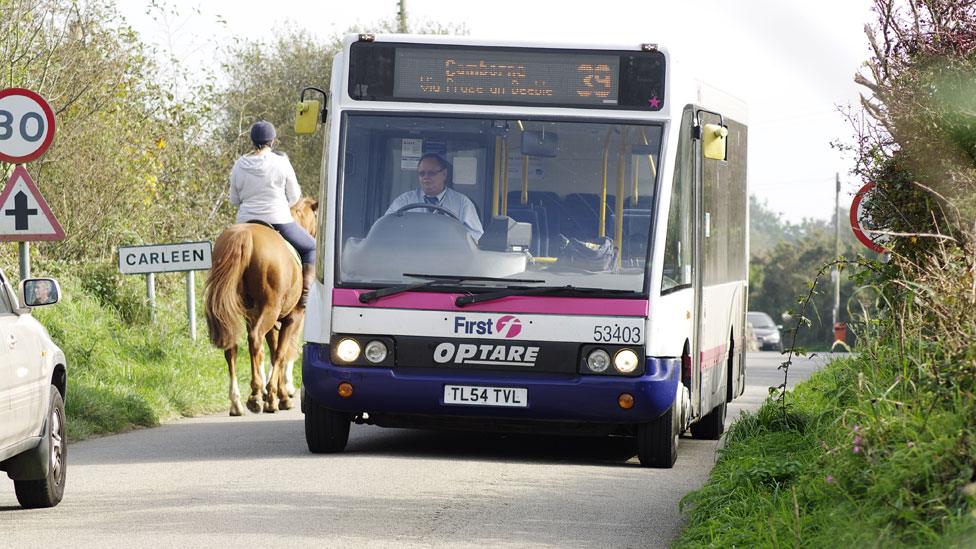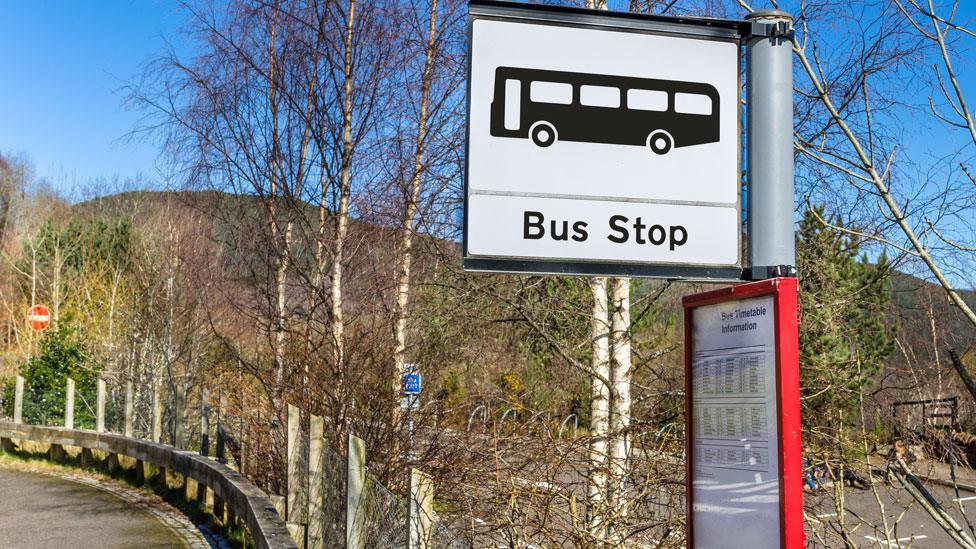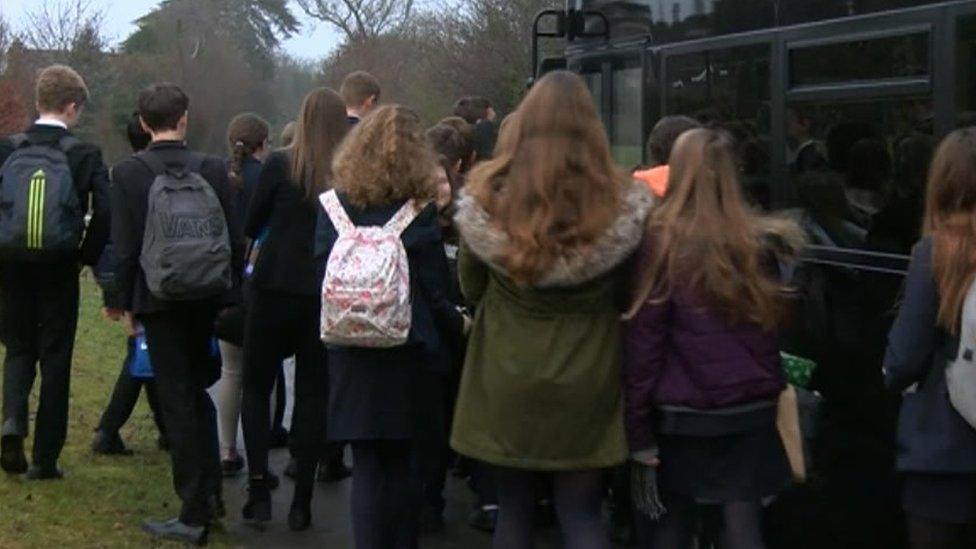Free school transport lost for 20,000 rural pupils
- Published
- comments

Rural communities face fewer bus services and lost subsidies for school transport
More than 20,000 children in rural England have lost access to free school transport, say local authorities.
The County Councils Network says budget shortages mean rural school transport is being cut to a "bare minimum".
They say school transport costs are on average almost 10 times higher for councils in rural areas than for those in cities.
"We have had little choice but to cut back on free transport services," said the leader of Oxfordshire council.
The County Councils Network says that data from 20 rural authorities shows that in 2017 there were 22,000 fewer pupils getting free school transport, such as buses and taxis, compared with three years before.
Councils blame the cuts on a lack of funding and the much higher cost of collecting pupils in the countryside, who might be scattered over a wide area.
They say it is even harder for communities already facing "dramatic reductions in rural bus routes".
'Vital local service'
Geoff Barton, leader of the ASCL head teachers' union, said the loss of school transport would have a "massive impact" on rural communities.
Transport was a major issue for rural schools, he said, and social mobility would be damaged if parents could not access the schools they wanted for their children.

Changes to rural transport can have a "massive impact", says a head teachers' leader
David Inman, of the Rural Services Network, said such loss of free school transport made it increasingly difficult for young people and young families to continue living in the countryside.
The County Councils Network, representing 27 county councils and 10 unitary authorities, says on average rural authorities pay £93 per pupil in transport subsidies - while urban areas pay about £10.
But in many places it is much higher - more than £200 per pupil in North Yorkshire, £184 in Shropshire and £175 in Northumberland.
The council group is warning that further school transport cuts are likely that will disproportionately hit rural areas.
Pupils under the age of eight are entitled to free transport if their nearest school is more than two miles away - and three miles away for older pupils.
But local authorities have often helped with transport beyond this statutory minimum - and this is now threatened with cutbacks.
Ian Hudspeth, leader of Oxfordshire County Council, said school transport was a "vital local service" but authorities were struggling to afford it.
"We pay a rural premium in delivering these transport services, and it is becoming increasingly difficult to maintain subsidies," he said.
"Regrettably, we have had little choice to cut back on free transport services for thousands of rural pupils and tighten eligibility. "
- Published17 January 2017

- Published16 May 2018
